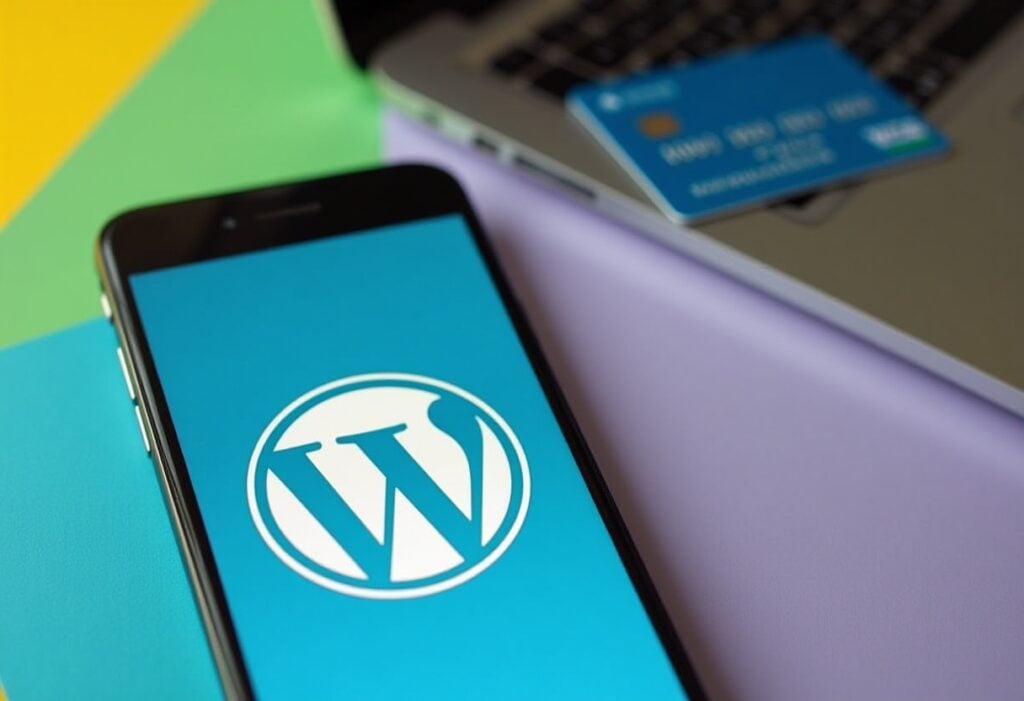If you are running a business and want a solid online presence, you’ve probably heard of WordPress, along with competitors like Drupal and Wix. Choosing the right content management system (CMS) for your business website is a critical decision because it will determine how your website works, how it is managed on an everyday basis, its security, how easy it is to modify, and much more. We’ve developed a useful guide to the WordPress CMS to help guide this decision, showing the features, pros and cons of this market-leading CMS.
What is WordPress?
WordPress is the most popular website builder and CMS in the world, powering 39.6% of the internet globally in 2021 and holding a 60.8% market share. Officially launched in 2003, over 500 WordPress websites are developed every day and customised by over 55,000 plugins.It is used to build, maintain, and modify websites, and is responsible for market-leading websites for big brands like The New Yorker, TechCrunch, the Microsoft News Centre, Time Inc., and the Facebook newsroom, as well as running a massive 28% of all e-commerce websites worldwide.What kind of websites can you make with WordPress?
- WordPress can be used to make several types of websites, including:
- Business websites
- Blogs
- Ecommerce websites
- News websites
- Online communities
- Portfolios
The pros of using WordPress CMS
So, why is WordPress so popular? Here are just a few reasons behind this platform taking the online world by storm:- WordPress is scalable
- WordPress is user-friendly
- WordPress is mobile-friendly
- WordPress is SEO-friendly
- WordPress is flexible and customisable
1. It’s scalable:
From huge Fortune 500 companies right down to hobby cooking blogs, this CMS can handle it all. As long as your web hosting service has the resources, you can make your website as massive or as functional as you like.2. It’s user-friendly:
Even if you don’t have a lot of tech knowledge, WordPress is fairly easy to use – especially when compared to other CMS systems and independently coded sites. This makes websites faster and easier to build from scratch, modify, and manage on a daily basis.3. It’s mobile-friendly:
Mobile now accounts for over half of web traffic worldwide. Google predominantly uses the mobile version of a site for indexing. A mobile-friendly website is a must-have in 2024.4. It’s SEO-friendly:
To make sure customers see your website and online content, you need a search engine optimised website – and WordPress delivers by supporting Google’s best practices. With free plugins like Yoast, it’s easy to check the SEO of your website content and adapt it through useful suggestions and insights to help it rank higher in Google search results.5. It’s flexible and customisable:
If you look at all the WordPress websites out there, they are almost unrecognisable from each other. This is because there are many different templates you can build your website from, and by using a trained WordPress specialist, you can transform these templates into something with a truly unique look and functionality. So, despite being based on cookie-cutter templates, these sites can be customised to reflect your business through a highly-tailored result.Discover more in our ultimate guide to the benefits of using WordPress.The cons of using WordPress CMS
For the sake of full disclosure and our personal ethics, we have to say that we really do enjoy using WordPress for building client websites – but that doesn’t mean that this CMS is not without its flaws. The drawbacks of this CMS include:- Lots of updates
- Vulnerability
- Speed and load time performance
- DIY issues









